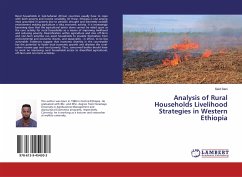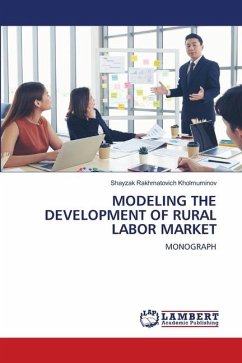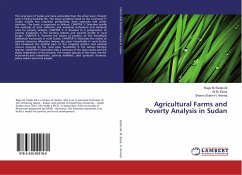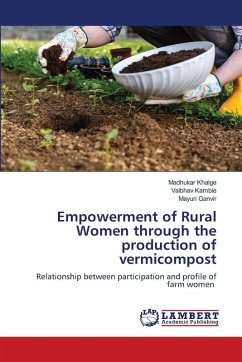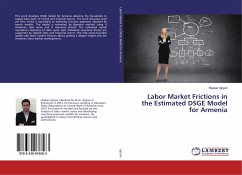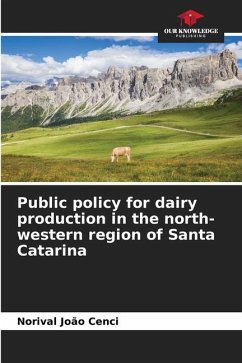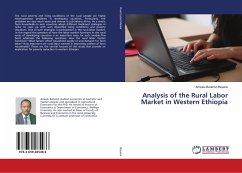
Analysis of the Rural Labor Market in Western Ethiopia
Versandkostenfrei!
Versandfertig in 6-10 Tagen
43,99 €
inkl. MwSt.

PAYBACK Punkte
22 °P sammeln!
The rural poverty and living conditions of the rural people are highly heterogeneous problems in developing countries. Particularly, the problems are very much sever and diverse in sub-Sahara Africa. As a result, farm households in such countries adopt different livelihood strategies in order to cope up with such diversified living conditions and poverty situations. One of such strategies is participation in the rural labor market. In this regard the question of how the labor market functions in the rural areas of developing countries is an important issue for such analysis.This book addresses...
The rural poverty and living conditions of the rural people are highly heterogeneous problems in developing countries. Particularly, the problems are very much sever and diverse in sub-Sahara Africa. As a result, farm households in such countries adopt different livelihood strategies in order to cope up with such diversified living conditions and poverty situations. One of such strategies is participation in the rural labor market. In this regard the question of how the labor market functions in the rural areas of developing countries is an important issue for such analysis.This book addresses the following questions: How the rural labor market functions? What factors affect household supply of and demand for farm labor? How important are rural labor markets in improving welfare of farm households? These are the central focuses of this study that provide an implication for poverty reduction in western Ethiopia.



